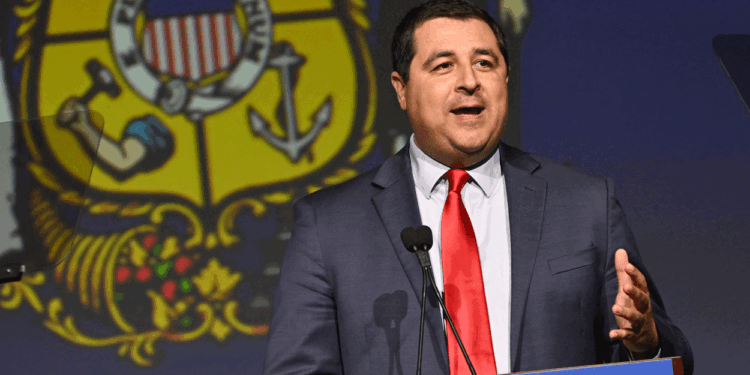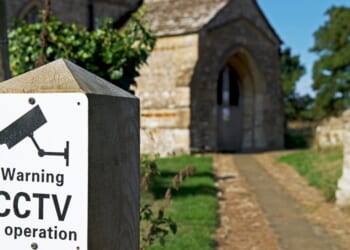Despite President Donald Trump’s pardons on Sunday, Democrat attorneys general told The Daily Signal and publicly suggested they plan to continue their state prosecutions against contingent state electors from the 2020 election.
Democrats attorneys general–from Arizona, Michigan, Nevada, and Wisconsin–brought criminal charges against the contingent Trump electors, who were in-waiting if courts or state legislatures found valid reason to reject the result of the closely-contested states that went to Joe Biden that year.
“President Trump’s actions have no bearing on our decision-making or prosecution under Nevada state law,” Nevada Attorney General Aaron Ford told The Daily Signal in a statement.
Ford brought forgery charges against six Trump contingent electors from 2020. A judge dismissed the original indictment in Clark County last year. However, Ford brought charges again, this time in Carson City, the state capital.
In Wisconsin, Attorney General Josh Kaul’s office charged Trump campaign associates that helped appoint the contingent electors.
“The criminal case in Wisconsin remains ongoing,” Rylie Fletcher, senior communications specialist for the Wisconsin Department of Justice, told The Daily Signal in an email.
Late Sunday, Trump pardoned 77 people, including campaign lawyers Rudy Giuliani and John Eastman, and former White House chief of staff Mark Meadows for disputing the outcome of the 2020 presidential election.
A spokesperson for Arizona Attorney General Kris Mayes did not respond to inquiries sent Monday and again on Wednesday. However, Mayes gave hints in a local TV interview even before Trump’s pardons that she might continue the prosecution. She brought charges against 11 Trump electors.
In Georgia, Fulton County District Attorney Fani Willis also brought charges against five of the people who were going to be contingent electors. A spokesperson for Willis’s office did not respond to inquiries for this story.
Michigan Attorney General Dana Nessel brought charges in 2023 against 16 alternate Trump electors, but a judge dismissed the case in September.
Presidents can issue pardons for federal offenses, so the pardons for the state charges are symbolic, according to Hans von Spakovsky, a senior legal fellow at The Heritage Foundation.
“A president can only constitutionally pardon federal prosecutions,” von Spakosky told The Daily Signal. “It could weaken the case of the prosecution. The defense could file motions that there is no longer a case and point to what the Justice Department has said.”
There wouldn’t likely be legal grounds for either the U.S. Justice Department to stop the prosecutions, nor legal action the states could take to challenge the pardons, said von Spakovsky, a former Justice Department lawyer.
In the pardon statement, U.S. Pardon Attorney Ed Martin argues presidential election functions are federal even if the charges came under state law.
“Notwithstanding that fact, these prosecutions are attempts by partisan state actors to shoehorn fanciful and concocted state law violations onto what are clearly federal constitutional obligations of the 2020 Trump campaign: the establishment of the contingent electors, the actions attendant to their roles as presidential electors, and their duties under established historical and legal precedent to exercise their responsibilities as electors—all of which are functions of federal—not state—law.”
The contingent electors, in theory, were supposed to step in if the Trump campaign could prove election fraud. The campaign assembled contingent electors in Arizona, Georgia, Michigan, Nevada, Wisconsin, New Mexico, and Pennsylvania. The Democrat prosecutors in three of those states, as well as the Fulton County District Attorney’s Office, secured criminal charges against the contingent electors.
The charges typically involve forgery, impersonating a public official, attempting to file false documents, and conspiracy to commit election fraud.
“These citizens and their supporters acted openly, in consultation with counsel, and while active litigation or other challenges were pending,” Martin wrote of the contingent electors. “At all times, they sought to uphold fundamental federal constitutional principles in advance of the election certification proceedings before Congress, while acting to ensure, not denigrate, the integrity of the election process.”
“Although the contingent electors acted lawfully within established constitutional traditions, many of them are facing years in prison and massive financial and other hardships,” Martin later added. “At no time in our country’s history have contingent electors or those associated with them been prosecuted criminally for their actions taken to ensure the integrity of the electoral process.”
“These citizens have not violated any law, but instead advanced core constitutional principles to challenge significant and provable irregularities in the election,” Martin argued. “They deserve immediate relief and freedom from this partisan oppression.”

















